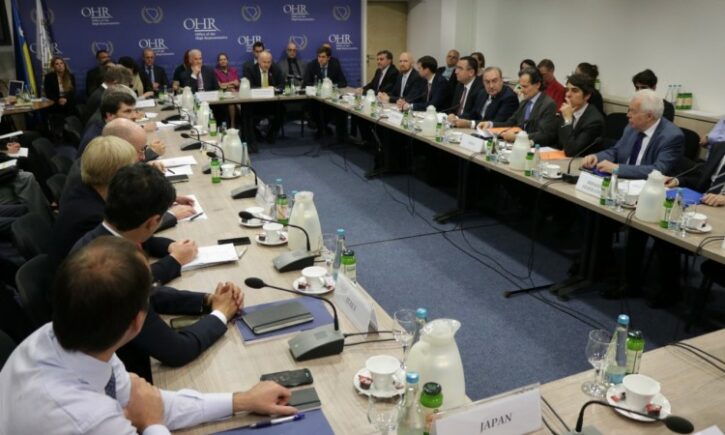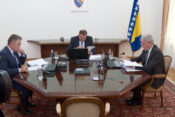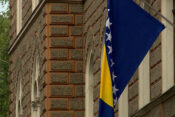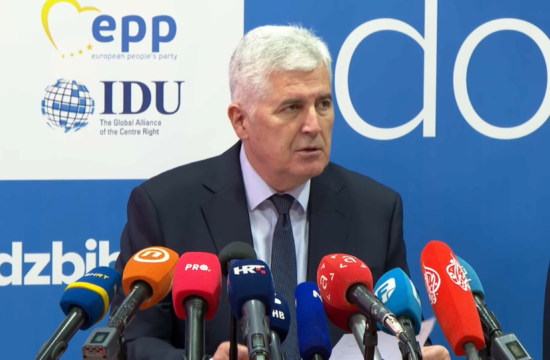
A board of foreign ambassadors in Bosnia called on the local political leaders not to take any steps that would jeopardise, weaken or disable the full functionality of the state institutions, and they expressed full support to political dialogue leading to the government formation at all levels.
The statement issued by the ambassadors of the Peace Implementation Council (PIC), a body monitoring the implementation of a peace treaty that ended the 1992-95 Bosnian war, comes a few days after the State Presidency failed to make final steps towards the state-level government formation, due to political disagreement on the country's relations with the NATO.
Although the leaders of three strongest nationalist parties signed an agreement on August 5 that among other things stipulates the principles to form the government, the statements they gave in the following days showed the deal was not likely to be implemented within 30 days, as agreed.
The country's road to NATO which was vaguely mentioned in the leaders’ agreement is a stumbling stone and has been preventing the government formation in the past ten months after the general election was held in October last year.
While the Bosniak and Croat representatives support the membership, the Serb political leadership is against it and is resolute in maintaining the stance on military neutrality.
Following the failed session of the State Presidency, Bosnian Serb leader and the Serb Presidency member, Milorad Dodik, said that Republika Srpska, the Serb-dominated entity he represents, will take necessary measures if the August 5 agreement is not implemented within the said deadline.
The Serb leadership, Dodik stressed, won’t allow having their rights usurped by “political Sarajevo,” referring to at least one of two other signatories, who represent another Bosnia's administrative unit, the Bosniak-Croat Federation (FBiH).
With the exception of the Ambassador of Russia in Bosnia, all ambassadors reaffirmed their position that entities and institutions “must abide by existing legislation and binding agreements.”
The State Constitution, existing legislation and integrity of the state-level institutions must be fully respected, said the Council.
Explaining their decision not to agree with the PIC statement, the Russian Embassy said it was necessary to point out why the dialogue was brought to a deadlock and that the reason is the adoption of the Annual National Programme (ANP), a document that Bosnia was invited to send to the NATO and which the many interpret as a step closer to the membership in the alliance.
“We found it necessary to say it out clearly in the statement, and not only to call for dialogue but to propose that seeking for the solution is approached in the most responsible way based on the principles from August 5,” said the Russian Embassy.
PIC was established in 1995 to implement the Dayton Peace Agreement and it is the international community body governing the country until it is deemed stable enough to govern itself. Bosnia’s top international official, the High Representative, who is tasked with monitoring the civilian implementation of the agreement, reports to PIC.






